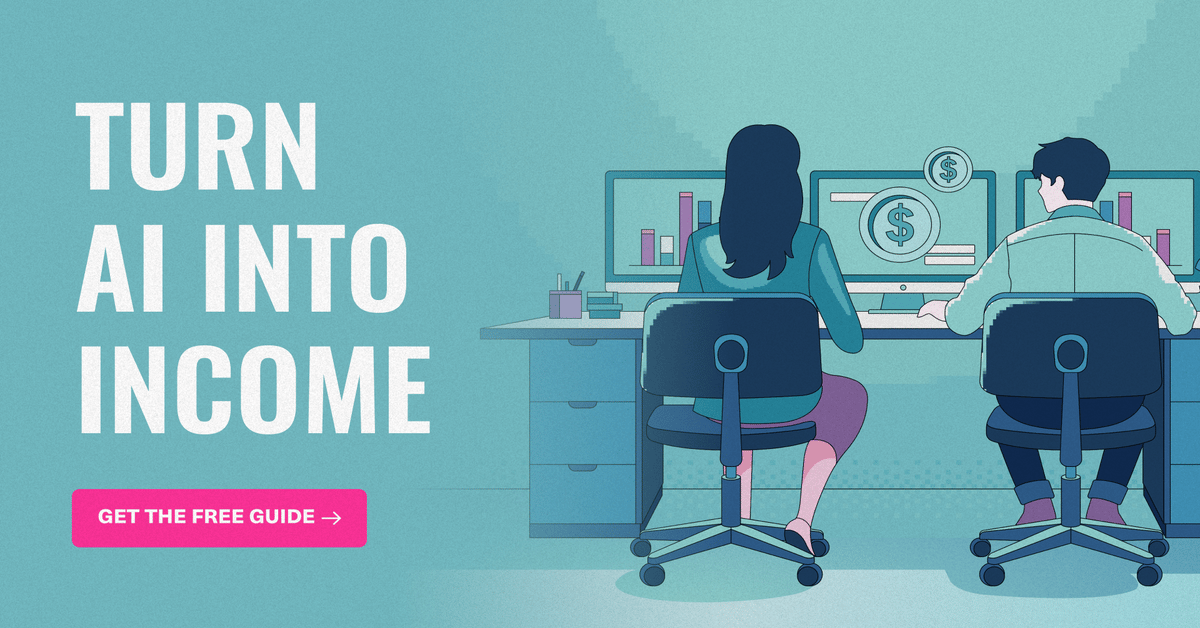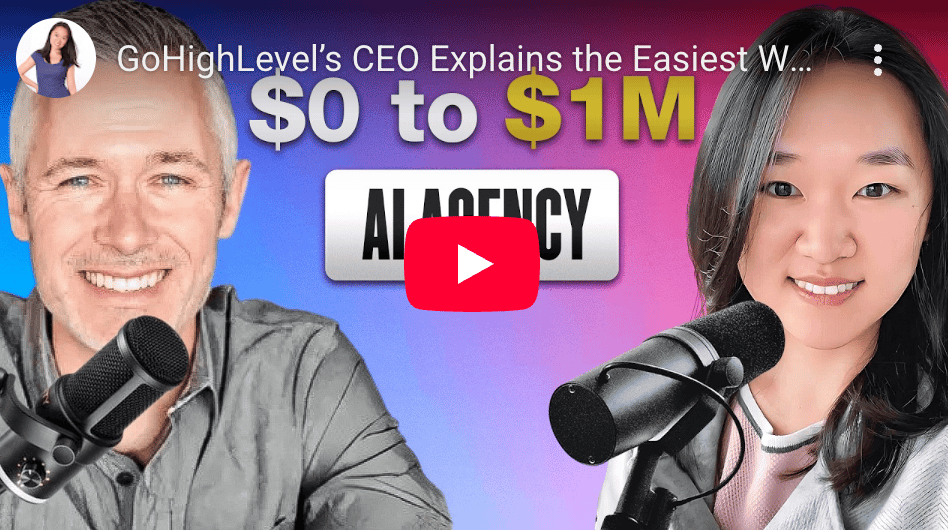- AI Business Insights
- Posts
- Scale Your Agency with This $297 Feature
Scale Your Agency with This $297 Feature
This Tiny Town Agency Trick
Most people think building a million-dollar agency requires landing massive enterprise clients or mastering complex, custom integrations, but the reality is often much simpler and closer to home.
Shoppers are adding to cart for the holidays
Over the next year, Roku predicts that 100% of the streaming audience will see ads. For growth marketers in 2026, CTV will remain an important “safe space” as AI creates widespread disruption in the search and social channels. Plus, easier access to self-serve CTV ad buying tools and targeting options will lead to a surge in locally-targeted streaming campaigns.
Read our guide to find out why growth marketers should make sure CTV is part of their 2026 media mix.
I just watched a fascinating interview hosted by a YouTube creator featuring Sean Clark, the CEO of GoHighLevel, who broke down exactly how to scale by doing the opposite of what most gurus teach.
This industry expert explains that the biggest opportunity right now isn’t in servicing Fortune 500 companies, but in helping the local plumber, dentist, or tire shop down the street solve one specific problem. The original poster did a fantastic job drawing out the specific strategies Sean used to build a massive software company, and the core takeaway is surprisingly accessible.
The “Utility Bill” Strategy: Technology-Enabled Services
The central concept discussed in the video is the shift from selling “services” (which are time-consuming) or “software” (which is overwhelming) to selling “Technology-Enabled Services.” The expert argues that local business owners do not want to learn a new tool; they are too busy running their actual business. However, they also don’t want to pay $3,000 a month for a high-touch agency retainer.
The sweet spot, according to the CEO, is selling an outcome that is delivered by technology but managed by you. You aren’t selling them a login to a CRM; you are selling them “missed call recovery” or “automated review management.”
By positioning your offer this way, you become like a utility bill. When you charge a modest fee (e.g., $300-$500/month) for a service that runs automatically and consistently generates value, the business owner never cancels. It becomes as essential as their power bill. The interviewee notes that while high-ticket agencies suffer from massive churn because clients constantly evaluate if the $3k expense is worth it, “utility” agencies keep clients for years because the value-to-cost ratio is undeniable.
The “One Feature” to Rule Them All: Inbound Voice AI
One of the most powerful takeaways from the discussion is that you do not need to use all 500 features of a platform to be successful. In fact, the expert suggests starting with just one feature: Inbound Voice AI or the “Missed Call Text Back” automation.
The logic here is irrefutable. Local businesses miss phone calls every single day. These aren’t social calls; they are customers with credit cards in hand looking to book a service. If the business doesn’t answer, that customer calls the next competitor on Google. Sean breaks down the math clearly: if a business misses 10 calls a day and their average invoice is $1,000, they are potentially lighting $10,000 on fire daily.
The Solution:
You set up a system where an AI or automated text immediately responds to missed calls.
It engages the lead, answers basic questions, and books the appointment.
You charge a flat monthly fee (e.g., $297) for this “receptionist” capability.
This creates an immediate return on investment for the client. One saved customer pays for your service for the entire year. The founder emphasizes that you can scale to millions in revenue just by selling this single, high-impact solution to boring, recession-proof businesses like home services and auto repair shops.
The “Doctor Frame” Sales Approach
A major hurdle for new agency owners is the fear of sales, but the interviewee offers a brilliant reframe: stop pitching and start diagnosing.
Instead of walking into a business and listing off technical features like “funnel builders” or “workflow automations” (which confuse business owners), the expert recommends acting like a doctor. You simply ask questions that highlight the pain.
The Script Flip:
Don’t say: “I can build you a chatbot.”
Do ask: “Do you know how many calls you missed last week?”
Do ask: “How much is one new customer worth to you?”
When the business owner realizes they don’t know the answer—or worse, realizes how much money they are losing—they will ask you for the solution.
The CEO also suggests a “one-to-many” sales approach for those afraid of cold calling. He advises going to local BNI groups or Chamber of Commerce meetings, not to sell, but to educate. If you give a presentation on “How Local Businesses Lose Money on Missed Calls” without pitching a product, you establish yourself as the authority. The natural result is that people will approach you after the meeting asking for help. This builds trust much faster than a cold email ever could.
Turn AI Into Your Income Stream
The AI economy is booming, and smart entrepreneurs are already profiting. Subscribe to Mindstream and get instant access to 200+ proven strategies to monetize AI tools like ChatGPT, Midjourney, and more. From content creation to automation services, discover actionable ways to build your AI-powered income. No coding required, just practical strategies that work.
*Ad
Other awesome AI guides you may enjoy
The Power of Local Trust Over Niche Expertise
There is a longstanding debate in the agency world: should you niche down by industry (e.g., “The King of Dental Marketing”) or by location? The guest takes a strong stance that local is the ultimate niche.
While internet logic says you need to be a vertical expert, human psychology values proximity. The CEO explains that trust is the currency of small business. If you walk into a local shop and can commiserate about the storm that knocked down trees in town last night, you have instantly established a bond that a remote “expert” cannot replicate.
Why Local Wins:
Retention: Local clients rarely leave because they have a personal relationship with you.
Referrals: Local business owners all know each other. If you do a great job for the dry cleaner, they will tell the pizza shop owner next door.
Simplicity: You don’t need to be a marketing genius. You just need to be the person who sets up the tools that capture the traffic they are already getting.
The discussion highlights that while there are 70,000+ agencies using this software, the market isn’t saturated because millions of local businesses are still operating manually. They are waiting for someone to walk through the door and digitize their operations with a handshake and a smile.
For more details on the full interview and the strategies discussed, check the link in the comments!
The Gold standard for AI news
AI will eliminate 300 million jobs in the next 5 years.
Yours doesn't have to be one of them.
Here's how to future-proof your career:
Join the Superhuman AI newsletter - read by 1M+ professionals
Learn AI skills in 3 mins a day
Become the AI expert on your team
*Ad




